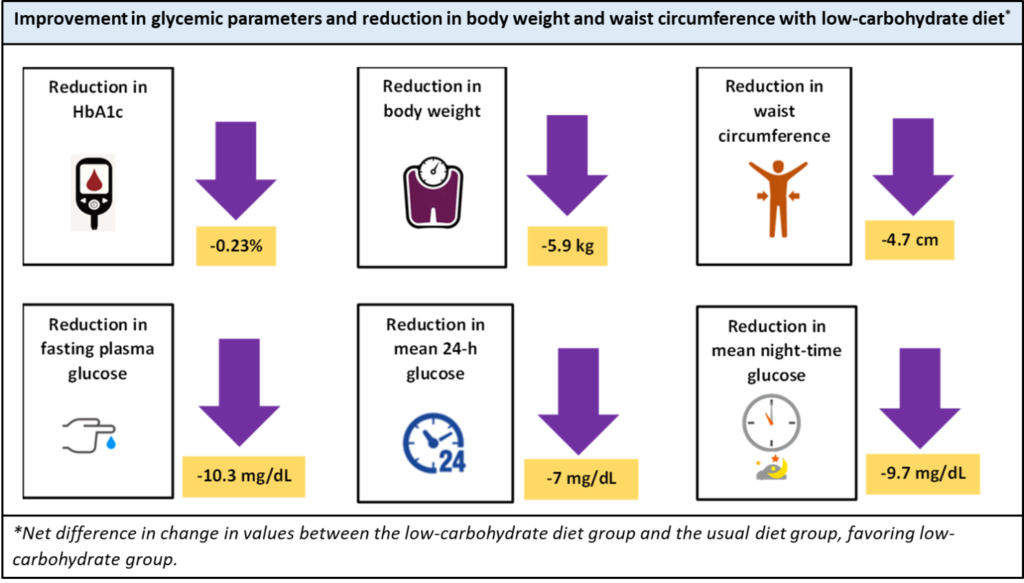
A new study by Dorans et al., published in the journal, JAMA Network Open, reported that healthy, low-carbohydrate diet, containing unsaturated fat and protein, high-fiber foods, and minimally refined carbohydrates, improved glucose levels in individuals in the prediabetes and diabetes range.
This study was a single-center, randomized clinical trial in 150 adults (40–70 years of age) who had elevated levels of glycated hemoglobin (HbA1c) in the prediabetes and diabetes range, i.e., 6–6.9%. The study participants were administered either usual diet or low-carbohydrate diet containing <40 net grams of carbohydrates in the first 3 months, followed by <60 net grams of carbohydrates in the next 3 months. None of the enrolled participants were receiving any glucose-lowering medication.
After 6 months, the participants who received low-carbohydrate diet had significantly more reduction in glycemic parameters compared to those who received the usual diet. Body weight and waist circumference were also significantly reduced with the dietary intervention (see graphic).

Clinical implication: This study demonstrated the benefits of low-carbohydrate diet in reducing glycemic levels, body weight, and waist circumference in individuals with elevated HbA1c levels (6–6.9%) not treated with any anti-diabetic medication. These results indicate that following a low-carbohydrate diet may be a useful dietary intervention in the prevention and treatment of diabetes.
(Reference: Dorans K, Bazzano L, Qi L, et al., Effects of a low-carbohydrate dietary intervention on hemoglobin A1c – A randomized clinical trial. JAMA Network Open. 2022;5(10):e2238645. Doi:10.1001/jamanetworkopen.2022.38645)
